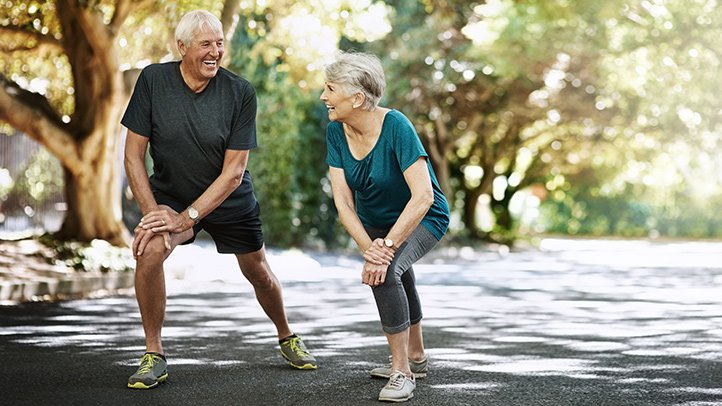Move a Little, Gain a Lot
If you knew how much even the smallest amount of exercise could improve your health, you’d no doubt be willing to pay a great deal to obtain it. But exercise is free. Even better, you don’t have to exercise to exhaustion to reap the many study-proven benefits of regular movement.
Our concierge doctors in Jupiter, Florida, want to bring you up to date on the latest research findings, which demonstrate what difference even a little bit of exercise can make in your health.
Exercise benefits
Researchers have known for years about the many benefits that result from regular exercise:
better cardiovascular health, improved mood, weight control, increased energy, lower stress, better control of such chronic diseases as diabetes and arthritis, and even cancer. Exercise has also been shown to help prevent dementia, depression, and insomnia.
According to the Mayo Clinic, some examples of the types of disorders that can be alleviated by exercise include:
- Heart disease – In addition to strengthening the heart muscle and lowering blood pressure, exercise can help you be more active without experiencing chest pain or other symptoms.
- Diabetes – Regular exercise can not only help insulin more effectively lower your blood sugar level, but help control weight and boost energy.
- Asthma – Exercise has been shown to control the frequency and severity of asthma attacks.
- Back pain – Regular low-impact aerobic exercise can help increase the strength of your back muscles and improve endurance and muscle function.
- Arthritis – Exercise is the primary approach to reduce pain, help maintain muscle strength in affected joints and reduce joint stiffness.
Other conditions that have been shown to benefit from exercise: chronic obstructive pulmonary disease (COPD), intermittent claudication (leg cramps while walking), depression, osteoarthritis, dementia, gallstones, diverticulitis, peripheral vascular disease, and as many as 12 kinds of cancer. In those who have had transient ischemic attacks, or mini-strokes, exercise has been shown to improve blood flow to the brain and diminish the risk of a full-blown stroke.
A little exercise, large benefits
But if you’re thinking you’ll need to put your entire life on hold and work out for hours every day to reap these types of benefits, think again.
A study published last month in the American Journal of Epidemiology confirmed numerous earlier studies which found any regular movement can have marked results in improving health. It found that replacing just 30 minutes of sedentary time with 30 minutes of light physical activity was associated with a 17 percent lower risk of early death.
“If you replace 30 minutes of sitting time with 30 minutes of light-intensity physical activity—so something like a casual stroll down the hall—that can lower your risk,” Keith Diaz, a certified exercise physiologist and assistant professor of behavioral medicine at New York’s Columbia University Medical Center, told CNN. Diaz was the first author of the study.
Of course, more is even better. The study also reported a 35 percent lowered risk of early death with 30 minutes of moderate to vigorous exercise. The American Heart Association and the World Health Organization, among others, recommend 150 minutes of moderate exercise or 75 minutes of vigorous exercise each week, ideally spread out so you get some on most days.
Simple steps
But if you can’t manage that much, take heart. According to a recent study published in the Journal of the American Medical Association (JAMA), those who confine their workouts to one or two sessions a week (the so-called “weekend warriors”) still lower their risk of dying over the next decade almost as much as those who exercise throughout the week.
“If someone is completely inactive, the best thing they can do is getting out and taking a walk,” said Hannah Arem, a health researcher at George Washington University. She was not involved in the study, but wrote a commentary accompanying the JAMA article. She called the results “encouraging or perhaps motivating” for those who think the little bit of time they can dedicate to exercise isn’t worth the effort.
Diaz stressed that any form of movement can have beneficial effects.
“You don’t have to take 10 minutes’ break and go run up and down the stairs,” he said. “If you take a one-minute movement break and instead of going to the bathroom closest to your desk, you go to the bathroom furthest from your desk, maybe that’s enough to help you accrue this healthful activity.”
If you’d like to incorporate more movement into your life, be sure to check with us. We can show you ways to improve your health almost effortlessly.

